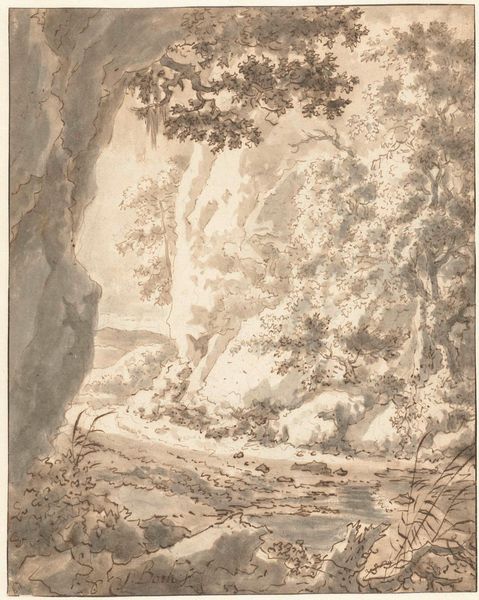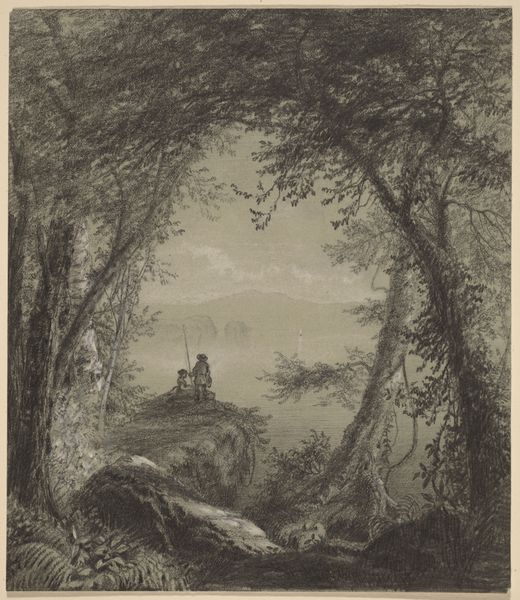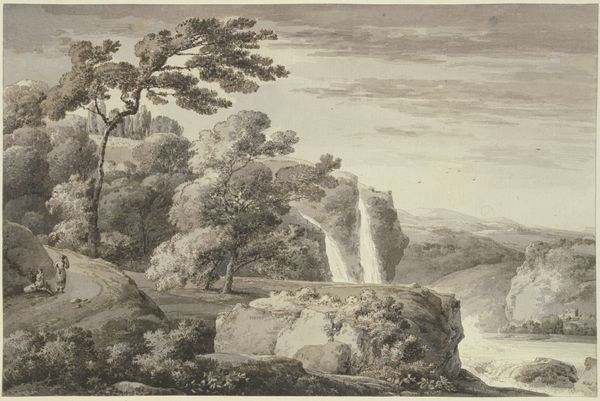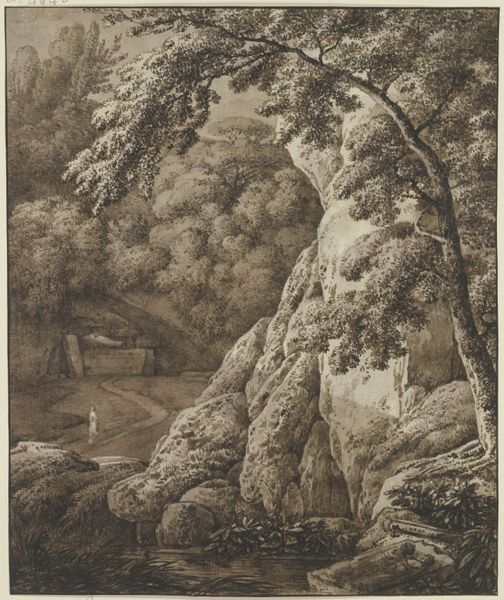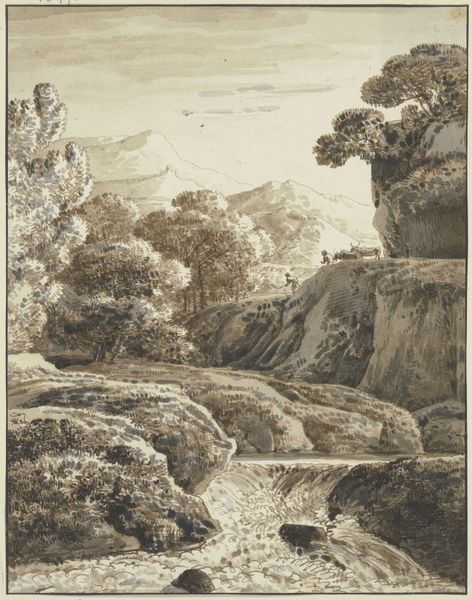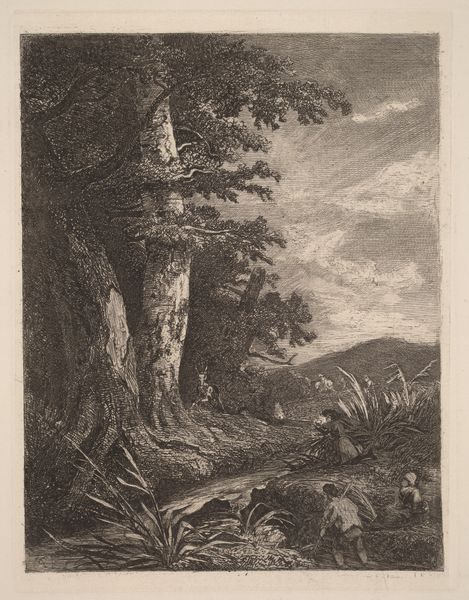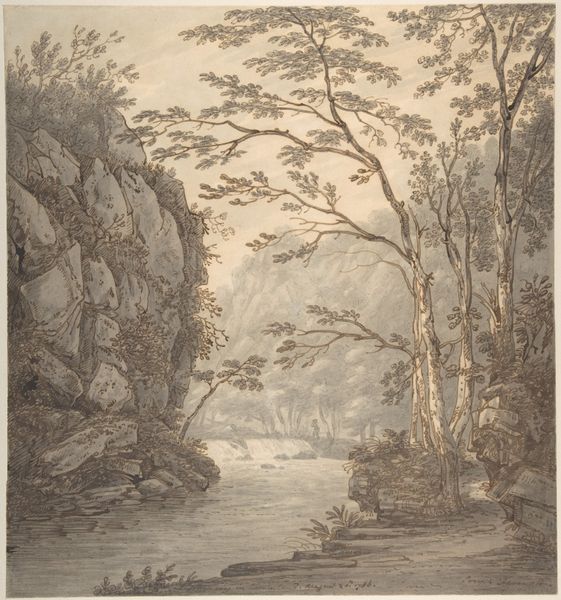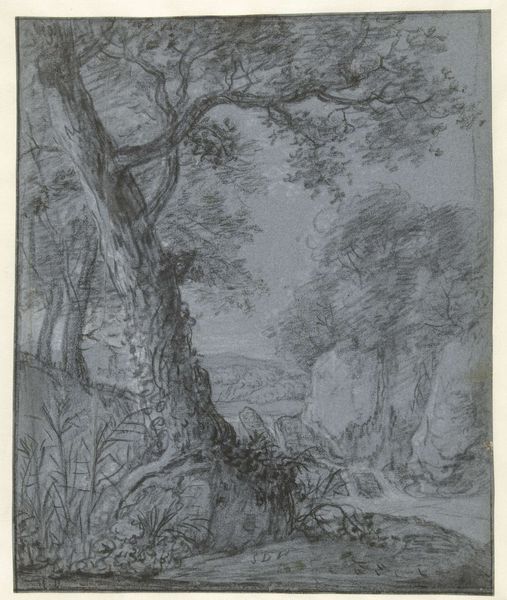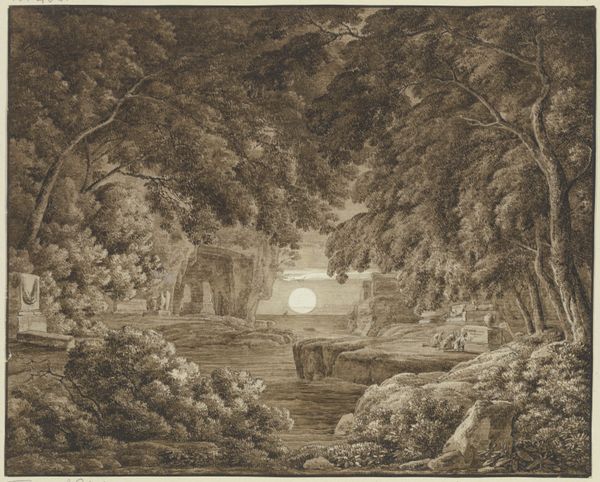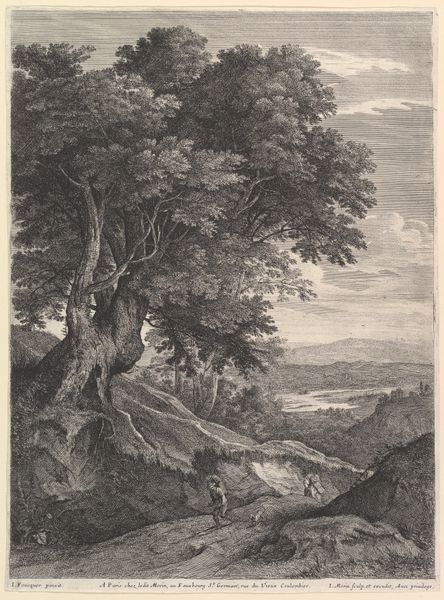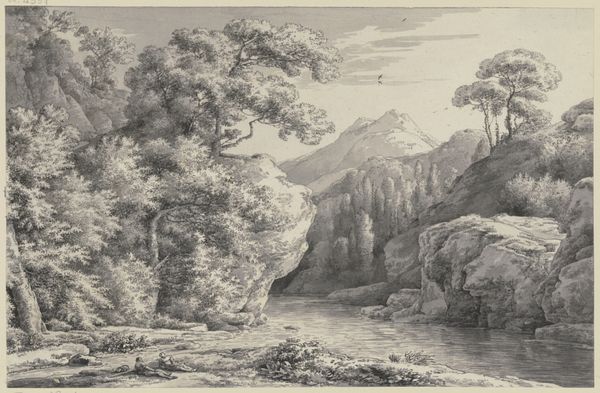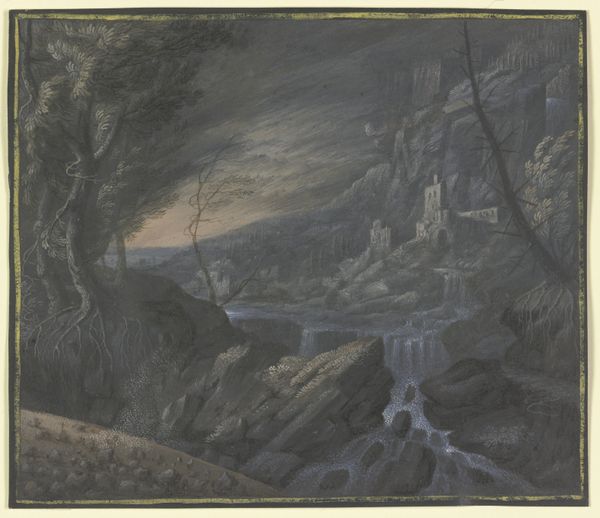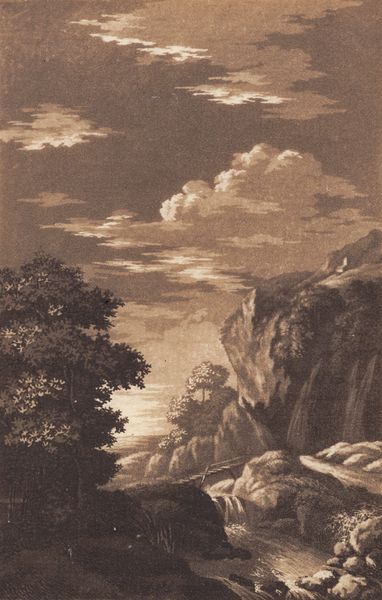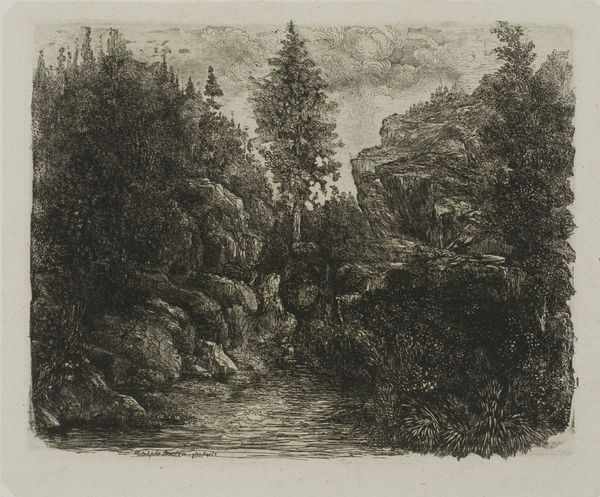
drawing, print, etching, ink
#
drawing
#
narrative-art
#
neoclassicism
# print
#
etching
#
landscape
#
figuration
#
ink
#
pencil drawing
#
geometric
#
classicism
#
romanticism
#
15_18th-century
#
chiaroscuro
Copyright: Public Domain
Franz Kobell created this landscape, "Felshöhle mit antikem Monument bei Mondschein," using sepia ink, a brown pigment derived from cuttlefish, sometime between 1749 and 1822. The image depicts a grotto, an artificial cave, complete with a classical monument. Grottoes such as this were popular features of the gardens of the wealthy in eighteenth-century Europe. They hark back to an idealised vision of ancient Greece and Rome. The inclusion of classical monuments would have been a familiar visual code to the landed gentry, signifying their taste, education and cultural standing. By using sepia ink, Kobell evokes the colours of classical antiquity, reinforcing the cultural associations of his subject matter. If we are to fully understand the social and political context of this drawing, further research is needed into the social and cultural history of garden design in eighteenth-century Germany. We might consider how the fashion for classicism reflected the values of the ruling elite.
Comments
No comments
Be the first to comment and join the conversation on the ultimate creative platform.
